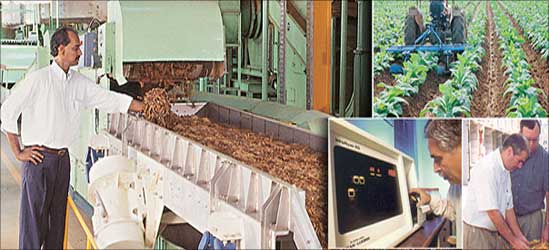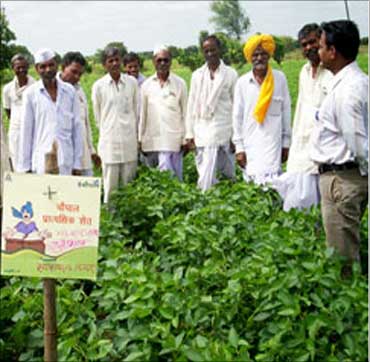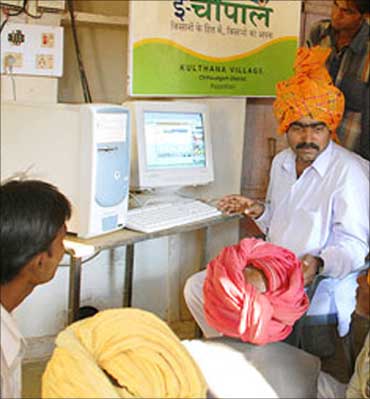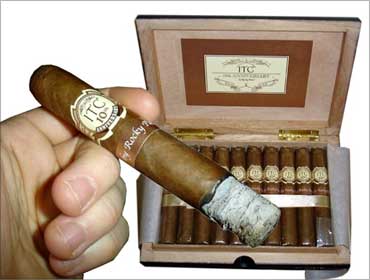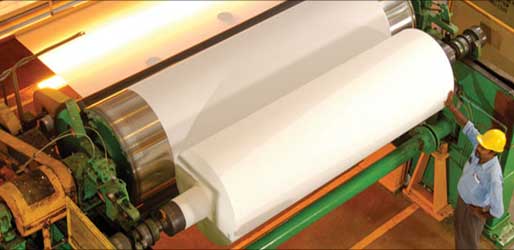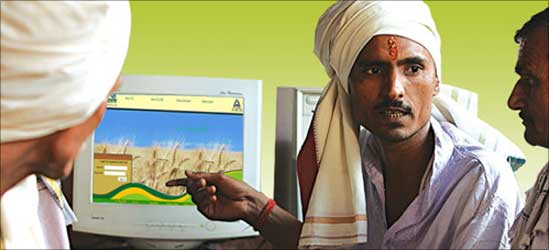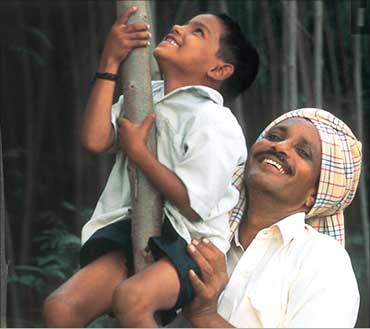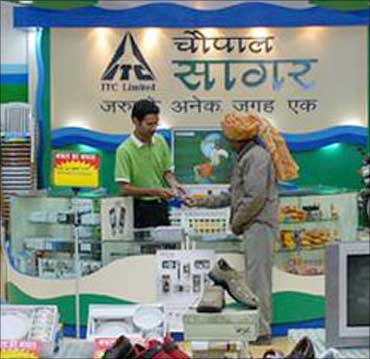 | « Back to article | Print this article |
ITC's 100 glorious years
Diversified conglomerate ITC turned 100 years old today, August 24, 2010.
ITC, which began its journey in 1910 when the British owned Imperial Tobacco Company started making cigarettes in then Calcutta, today boasts of a market capitalisation of Rs 1,00,000 crore (Rs 1 trillion). It has presence in FMCG, hospitality, paper and packaging, agri-business and information technology.
August 24, 1910: The Imperial Tobacco Company was born. The 100-year-old company came into existence with an authorised capital of Rs 1,000.
What started off as a small tobacco company in a rented place, is today one of India's best known conglomerates with a multi-business portfolio of cigarettes and tobacco, hotels, information technology, packaging, paperboards and specialty papers, agri-business, foods, lifestyle retailing, education and stationery and personal care.
Click NEXT to read on . . .
ITC's 100 glorious years
With a market capitalisation of over Rs 100,000 crore (Rs 1 trillion) and a turnover of Rs 15,582 crore (Rs 155.82 billion) in 2008-09, the ITC group has co a long way.
The ITC group employs over 26,000 people at more than 60 locations across India and has 338,000 shareholders.
The company is now known as 'ITC Limited'. The company headed by Y C Deveshwar is likely to celebrate the day with a special dividend to its shareholders.
Click NEXT to read on . . .
ITC's 100 glorious years
ITC began its journey as a small cigarette company. It traces its beginning to a leased office on Radha Bazar Lane, Kolkata. On its 16th birthday in 1926, the company bought a plot of land for Rs 310,000.
This land marked the beginning of a huge growth for the company. Two years later, the company's headquarters, 'Virginia House', came up on this land.
It set up India's first cigarette factory at Munger in 1908 and commenced tobacco leaf buying operations in Andhra Pradesh.
Click NEXT to read on . . .
ITC's 100 glorious years
Started by the British, the ITC got its first Indian manager in 1934. Abdur Sardar Hussain was its first Indian manager while the first Indian chairman was Ajit Narain Haskar.
Click NEXT to read on . . .
ITC's 100 glorious years
It had five cigarette and two leaf processing factories, one printing and packaging unit was set up in 1925 as a strategic backward integration for the cigarettes business.
Click NEXT to read on . . .
ITC's 100 glorious years
ITC hotels currently owns and operates 100 hotels in 75 destinations.
Click NEXT to read on . . .
ITC's 100 glorious years
Four years later, in 1979, the company entered the paperboards business by promoting ITC Bhadrachalam Paperboards. Bhadrachalam Paperboards was merged with ITC in March 2002.
In 1990, ITC set up the agricultural business hub for export of commodities. A decade later, this e-choupal initiative it is one of the most successful projects the ITC group.
In 2000, ITC entered a new segment, the stationery business with the 'Expressions' range of greeting cards. This was followed by Paperkraft and Classmate brand of notebooks.
Click NEXT to read on . . .
ITC's 100 glorious years
In 2000, it forayed into with the Wills Sport range for men and women. It also has the men's wear brand, John Players. The group also entered the IT business, ITC Infotech India in 2000.
A year later, ITC launched a range of ready-to-eat Indian dishes under the Kitchens of India brand. It also owns popular brands like Candyman, Aashirvaad atta (wheat flour), Sunfeast biscuits and Bingo, the snack brand. Today the food business has over 200 products under six distinctive brands.
Click NEXT to read on . . .
ITC's 100 glorious years
One of ITC's biggest projects for India's rural transformation is the e-choupal initiative.
The farmers get access to daily prices of a variety of crops in India and abroad trough the computer terminals installed in their villages, helping them get the best price for its products.
Click NEXT to read on . . .
ITC's 100 glorious years
Its facilitation centres deliver a host of farm-related services training, soil testing, product quality certification, medical and clinical services, cafeteria and fuel station.
Click NEXT to read on . . .
ITC's 100 glorious years
The ITC group has about 24 Choupal Saagar hubs in 3 states. By 2010, the company plans to expand it to 100 hubs.
ITC is also helping poor tribals make their wastelands productive, investing in rainwater harvesting to bring much-needed irrigation to drylands and is empowering rural women by helping them evolve into entrepreneurs.
It also provides infrastructural support to schools for children in villages. ITC's initiatives help over 5 million villagers across India.
